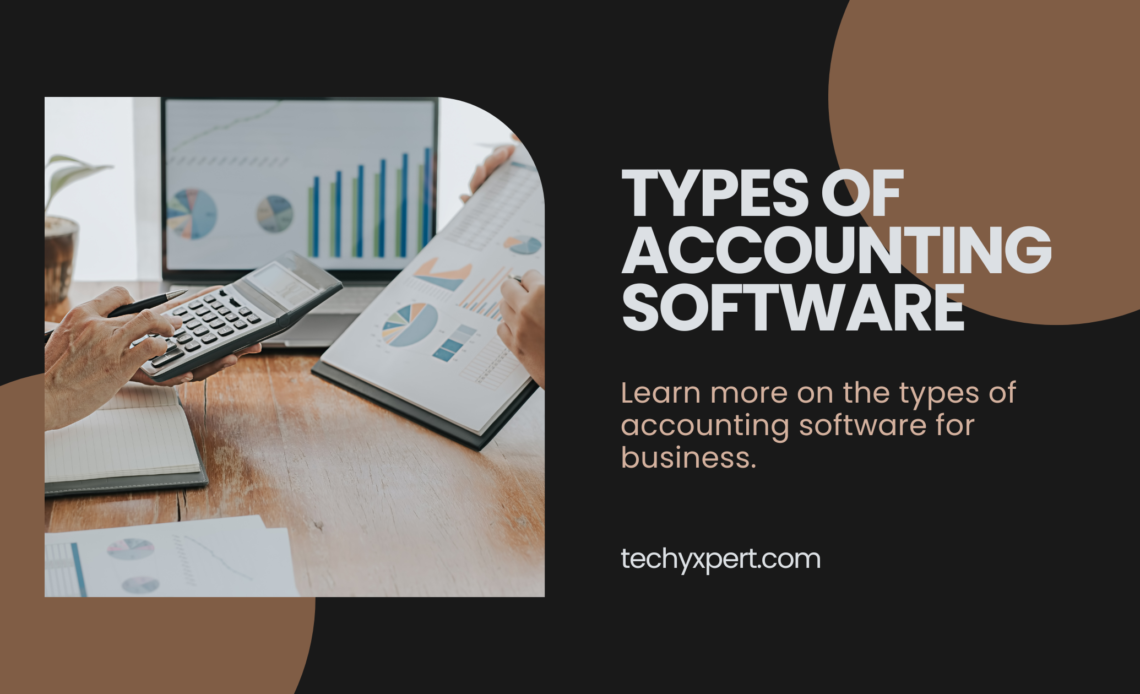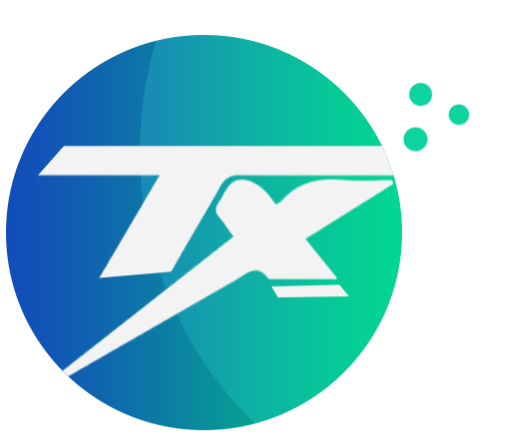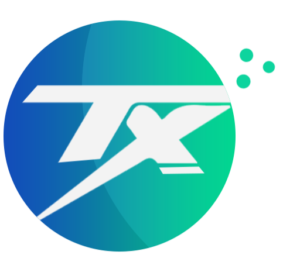
In today’s rapidly evolving business landscape, having the right accounting software is essential for managing financial transactions efficiently. In this comprehensive guide, we will provide a brief idea of the different types of accounting software available and provide valuable insights to help you make the best choice that aligns with your accounting requirements.
Accounting software is a computer program that assists bookkeepers and accountants in recording and reporting a firm’s financial transactions. It can manage budgets, perform accounting tasks for multiple currencies, perform payroll, and prepare financial reporting. Accounting software is crucial in helping organizations run their day-to-day business processes, allowing business leaders to keep their finger on the pulse of their company’s financial performance. Accounting software can make tasks like invoicing customers, recording payments, and following up on past-due receivables much easier and faster.
The 8 Main Types of Accounting Software
- Spreadsheets
- General Accounting Software
- ERP Software
- Payroll Software
- Inventory Management Software
- Invoicing Software
- Commercially-Available Software
- Custom Accounting Software
Spreadsheets as Accounting Software
Most small business are mainly depending on Spreadsheets by Microsoft Excel as their accounting software, spreadsheets are free for a genuine Windows Operating system and can be used for small-scale business transaction recordings and account keeping. Spreadsheets are only used by organizations that have low financial transactions.
General Accounting Software
Accounting software is a powerful tool that facilitates efficient management of financial transactions. It simplifies the process of recording, organizing, and analyzing financial data, enabling businesses to maintain accurate and up-to-date records. By automating tasks such as invoicing, expense tracking, and financial reporting, accounting software streamlines financial operations. Accounting software is an indispensable asset for any organization seeking to enhance its financial management processes.
Accounting software performs several critical functions, with the general ledger, accounts payable, and accounts receivable being among the major ones.
General ledger, accounts payable, and accounts receivable are all important components of accounting. Here is a brief explanation of each:
General Ledger:
- The general ledger is a record of all financial transactions of a company.
- It contains all accounts, including assets, liabilities, equity, revenue, and expenses.
- The general ledger is used to prepare financial statements, such as the balance sheet and income statement.
Accounts Payable:
- Accounts payable is a liability account that tracks money owed to vendors or suppliers for goods or services received but not yet paid for.
- It is recorded as a credit in the general ledger.
- Accounts payable are usually due within a short period, such as 10, 30, or 60 days.
- When a company receives a valid bill for goods or services, it is recorded as a journal entry and posted to the general ledger as an expense.
Accounts Receivable:
- Accounts receivable is an asset account that tracks money owed to a company by its customers for goods or services sold but not yet paid for
- It is recorded as a debit in the general ledger.
- Accounts receivable are usually due within a short period, such as 10, 30, or 60 days.
- When a customer pays an invoice, the finance team credits the appropriate liabilities account and debits accounts receivable to account for the payment.
In summary, the general ledger is a record of all financial transactions, while accounts payable and accounts receivable are specific accounts within the general ledger that tracks money owed to vendors and money owed to the company by customers, respectively.
Enterprise Resource Planning Software (ERP)
Enterprise Resource Planning (ERP) software is a type of software that organizations use to manage day-to-day business activities such as accounting, procurement, project management, risk management, compliance, and supply chain operations. ERP software can include capabilities for procurement, supply chain management, inventory, manufacturing, maintenance, order management, project management, logistics, product lifecycle management, risk management, enterprise performance management (EPM), and human resources/human capital management. ERP software is designed to manage all aspects of a business, including financials, and is more comprehensive than accounting software.
The finance and accounting module is the backbone of most ERP systems. It manages the general ledger, automates key financial tasks, tracks accounts payable and receivable, closes the books efficiently, generates financial reports, complies with revenue recognition standards, mitigates financial risk, and more. ERP finance modules offer many of the same features as accounting software, but with additional tools that emphasize budgeting, forecasting, and planning.
Examples of Some ERP Software are Tally ERP, Odoo, Oracle Netsuite, Epicor, Acumatica
Read More: Ten Core ERP Features
Commercial off-the-shelf (COTS) Software
Commercial off-the-shelf (COTS) software is a popular type of accounting software used throughout the world. COTS software is moderately configurable to the needs of a business, contains multiple layers of error detection to prevent the entry of incorrect information, and produces standard reports that can usually be configured to the needs of the user. There are COTS packages that are specific to certain industries, with extra features to address the needs of their target markets. COTS software is cost-effective, especially in the initial stages, and can be used for a broad range of customers, offering a comprehensive set of features to streamline operations.
Here are some examples of COTS accounting software
Sage, Xero, Quickbooks, FreshBooks, Netsuite ERP, Tipalti Approve & Pay, Zoho Books, Wave, MYOB, Odoo, Microsoft Dynamics GP, Acumatica, SAP Business One.
Payroll Software
Payroll software is a type of software that helps businesses manage their payroll processes, including calculating employee pay, withholding taxes, and generating paychecks or direct deposits. Here are some uses and benefits of payroll software:
Uses of Payroll Software
- Automates employee pay and maintains human resource records like time and attendance.
- Calculates various employee costs, including expenses, benefits, and bonuses.
- Tracks employee schedules, payslips, and other important information.
- Generates various reports and summaries, such as salary statements or benefits reports.
- Allows employees to access and print forms like their payslips.
- Provides employee self-service portals that contain all their payroll details.
Benefits of Payroll Software
- Saves time by automating core payroll tasks, which would otherwise take a lot of manual work.
- Reduces errors in calculations, ensuring accurate and timely payments.
- Increases data security by storing all employee data safely on a secured server or cloud system.
- Provides cost-effective solutions for businesses of all sizes.
- Offers customer support systems to handle and assist users with any difficulties or queries they may have.
- Generates payslips and timely reminders.
- Eliminates the hassle of record-keeping, allowing you to quickly store and locate employee records.
- Increases employee satisfaction and motivation by providing monthly payroll reconciliation.
Here are some examples of payroll software:
Gusto Payroll, QuickBooks Payroll, ADP Payroll, Paychex Flex, OnPay, Patriot Payroll, Zenefits Payroll, Rippling Payroll, Square Payroll, and Payroll4Free.
Inventory Management Software
Inventory management software is software designed to track and manage items through various stages along the supply chain. It helps businesses manage their inventory, purchases, warehouses, and more. Here are some uses and benefits of inventory management software:
Uses of inventory management software:
- Track inventory levels and item categorization.
- Manage sales orders and purchase order tracking.
- Barcode scanning and automatic reorder point purchasing.
- Serial number and batch tracking.
- Real-time shipping rates and in-transit details of major shipping carriers.
Benefits of inventory management software:
- Saves time by automating core inventory management tasks.
- Reduces errors in calculations, ensuring accurate and timely inventory management.
- Increases data security by safely storing inventory data on a secured server or cloud system.
- Provides cost-effective solutions for businesses of all sizes.
- Offers customer support systems to handle and assist users with any difficulties or queries they may have.
- Generates reports and summaries, such as inventory statements or benefits reports.
- Provides real-time inventory reporting
Custom Accounting Software
Custom accounting software is a tailor-made software program designed to address a business’s specific accounting needs. It can automate several repetitive tasks and adapt to the needs of a business, saving time and improving efficiency. Custom accounting software can be designed to suit every specific need of a business, allowing businesses to choose the features they require and fit within their budget.
Invoicing software
Invoicing software is a type of software that helps businesses create and send invoices to their customers. It can help businesses create professional-looking invoices, accept online payments from customers, track invoice status and payment history, automate recurring invoices, and generate financial reports. Invoicing software saves time by automating core invoicing tasks, reduces errors in calculations, increases data security, provides cost-effective solutions for businesses of all sizes, offers customer support systems, generates reports and summaries, and provides real-time invoicing reporting. Some examples of invoicing software include FreshBooks, QuickBooks, Paymo, Zoho Invoice, Wave, and Hiveage. Invoicing software can be free or require a monthly subscription fee, and businesses should consider factors such as cost, ease of use, features, and customer support when choosing invoicing software.
Some Examples of Invoicing Software
- FreshBooks
- QuickBooks
- Zoho Invoice
- Hiveage
- Paymo
- Invoicera
- Square Invoices
- Xero
- Invoice Ninja
- Wave
Commercially-Available Software
Commercially-available accounting software is software that is commercially produced and sold in a retail store or online, ready to use without any kind of modification required from users. Some examples of commercially-available accounting software include QuickBooks, FreshBooks, Zoho Books, Xero, Sage, Wave, NetSuite ERP, KashFlow, MYOB, and Microsoft Dynamics GP. Commercially-available accounting software can be used for a broad range of customers, offering a comprehensive set of features to streamline operations. The best accounting software for a business depends on its specific needs, such as the size of the company, the industry it operates in, and the features required.
FAQs on Accounting Software
What are the types of accounting software?
There are several types of accounting software available, including:
- QuickBooks
- Xero
- Sage Intacct
- Zoho Books
- FreshBooks
- Wave Financial
- NetSuite
- Microsoft Dynamics 365
What are the 4 types of accounting systems?
Single-entry system: Suitable for small businesses with straightforward financial transactions.
Double-entry system: Widely used and tracks debits and credits for every transaction.
Cash basis system: Records transactions when cash is received or spent.
Accrual basis system: Records transactions when they occur, regardless of cash flow.
What are the types of accounting software and their uses?
- General ledger software: Manages financial data and generates reports.
- Accounts payable software: Handles vendor invoices, payments, and expenses.
- Accounts receivable software: Tracks customer invoices, payments, and collections.
- Payroll software: Calculates employee salaries, taxes, and deductions.
- Inventory management software: Tracks inventory levels, orders, and sales.
- Tax software: Assists in preparing and filing tax returns accurately.
What is software in accounting?
Software in accounting refers to computer programs designed to automate and streamline various accounting tasks. It helps businesses efficiently manage financial transactions, generate reports, track expenses, and perform other accounting-related functions.
Which is computerized accounting software?
Computerized accounting software refers to any accounting software that runs on a computer system or network. Examples include QuickBooks, Xero, Sage Intacct, and many others.
What is SAP accounting software?
SAP (Systems, Applications, and Products) is a comprehensive enterprise resource planning (ERP) software that offers various modules, including accounting and financial management. SAP accounting software provides robust financial functionality and is widely used by large organizations.
Is Excel an accounting software?
While Excel is not typically considered dedicated accounting software, it can be used for basic accounting tasks such as creating spreadsheets, managing budgets, and tracking expenses. However, it lacks some advanced features found in specialized accounting software.
Which type of software is MS Excel?
MS Excel is a spreadsheet software program developed by Microsoft. It is primarily used for creating, organizing, and analyzing data in the form of spreadsheets.
What is the best accounting software in India?
The best accounting software in India can vary based on individual business needs and preferences. However, some popular options include Tally ERP 9, QuickBooks Online, Zoho Books, Marg ERP 9+, and Busy Accounting Software.
What are the two main types of accounting methods?
Cash basis accounting: Records transactions when cash is received or paid.
Accrual basis accounting: Records transactions when they occur, regardless of cash flow.
Best accounting software in India for small businesses.
Some of the popular accounting software options for small businesses in India include Tally ERP 9, QuickBooks Online, Zoho Books, and Busy Accounting Software. However, the best choice depends on the specific needs and requirements of your small business.




